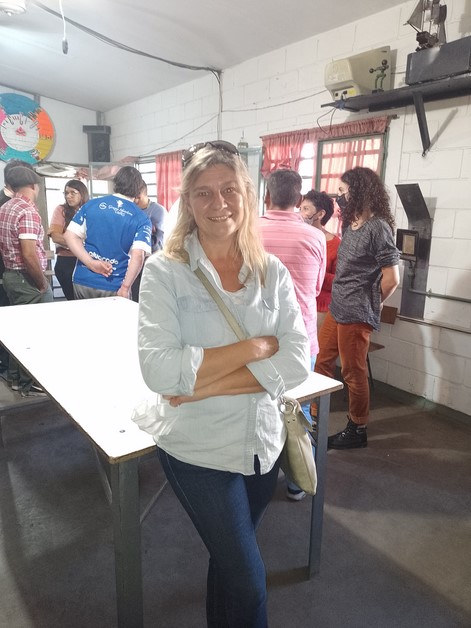Ana Augee, who works at the Lighthouse of Memory, spoke with us during the day for Memory, which was held in our Liberté territory with the participation of other organizations.
In particular, on this day, year after year, those who disappeared at the hands of the military are remembered, who at that time controlled the government power and with this they also tried to carry out the control of the minds and even the emotions of the people.
These types of acts are intended to instill never forgetting a dark step in Argentine history that occurred in the seventies during the last military dictatorship at the hands of perverse uniformed men who unscrupulously stained the honor of clothing that in the past many heroic patriots showered with honors .
Ana Augee, is a lawyer and works as stated in the group Faro por la memoria and investigates crimes against humanity.
She said that she had worked for ten years in the prison environment, in the case of Ezeiza and Marcos Paz, where she received complaints from people deprived of their liberty, for which she stated that she was not unaware of this area, referring to the place where she was at the time of interviewing her.
Among other things, she also pointed out that, after having lived the experience of this meeting, she left very moved and surprised by what she saw here in Liberté, regarding what has been achieved.
He tells us that he worked for ten years in the prison environment in federal prisons such as Marcos Paz and Ezeiza, and received complaints about the living conditions of those who lived in those areas, for which he considers that this environment is not alien to him, although she mentioned feeling moved and even surprised at what has been built since Liberté and she did not imagine that this could be achieved within a prison unit and she understands that it may be almost impossible to achieve it in other prisons, although if it could be achieved it would be very well.
Regarding El faro de la memoria, he explains that it is a former clandestine detention center, it was the school for non-commissioned officers of the Marine Infantry and adds that in 2015 it was opened as Faro de la memoria, under the backing of a law, although First in 2014, it was established in that place as a prelude to the creation of a cultural space, of art, of joy, of promotion of law.
Today we continue fighting for memory and for rights, which we all have and which is sometimes very difficult to have, because I think we all know what our rights are because later, when the right becomes effective, it is somewhat more complicated.
She says that there are four workers, a huge group of militants, who make up what is called the unemployed collective of memory, who work alongside us, which has areas such as institutional violence, health, education, among others.
There are different issues that are addressed in the Lighthouse and each one of the rights needs to be made visible.
In relation to the day given in Liberté, I cite as shocking for her to have met in the place the grandson of a person who was kidnapped and was locked up in the Lighthouse and although she did not know the grandfather of this prisoner, who was in the place as attending the event, he did know about him, since he read several times the lived history of Enrique Sánchez and it seems to him that he was like someone familiar and meeting here with the grandson was like a surprise.
We, said the leader, say that it is very difficult to point out the horror, and the truth is that we believe that seeing in some way is one of the ways, because we see that moving is one of the ways because what moves us is what makes us remember later.
She suggested that history be read and what is not known be asked, so that not only what happened to us is known, but also so that what once happened to us does not happen to us.
Source: Liberte






